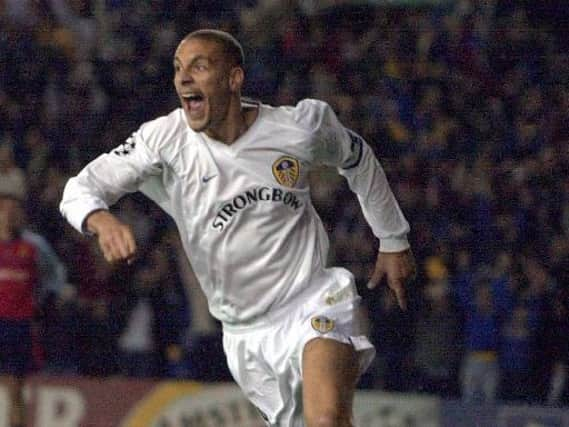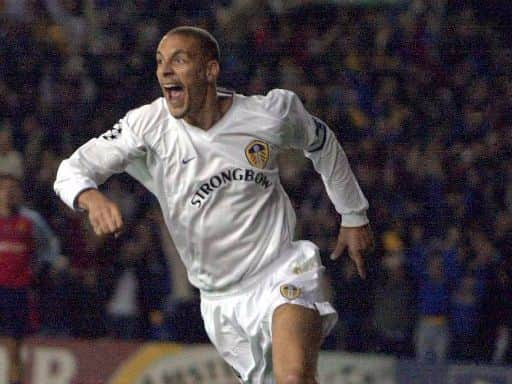Interview: Rio Ferdinand opens about about grief after wife's death


You've been incredibly private about your ordeal. Why did you decide to make this film now?
It was more to do with my kids. At the beginning, I was distraught. I didn't really want to talk to anybody, I kept looking at my kids and thinking, 'How do I get everything across to them? How do I make it easier for them? How do I make sure that they can have a normal life going forward?' And I kept thinking, 'Well I ain't talking to no counsellors'. But funnily enough, going through this process, making the documentary, has changed me a little bit - meeting various people and getting a better understanding of how to approach things. I did it to make it easier for [my children], and also to help other people. If I was talking about it, other people would be able to benefit from it because they'll see parallels or similarities. Or if they're coming into this situation knowing that someone is going to pass away through illness, there will be a few things that will help, not ease the pain, but make it a bit less of a bumpy ride so to speak.
Advertisement
Hide AdAdvertisement
Hide AdWhat were the things you found hardest in the days following Rebecca's death?


It's the basics. Us men are quite ignorant in that women that stay at home and look after their family and the home, we see that as not being a job. It's a f**king hard job. I always used to take the kids to school if I was there, but I would wake up 10 minutes before we had to go so they were already bathed, showered and fed and I would just put them in the car. The first time they went back to school, which was probably about three or four days later, I woke up in the morning and I was scrambling around the house. They were late because I was having a panic attack, and then I've got one of them in the car going, 'Mum wouldn't do this...' You just don't know what to do.
How did you get through it?
A network of people around you is so important and I was fortunate to have that, and also having my kids as inspiration to make sure I get up and do things and try and make things work. Some people aren't afforded that, some people haven't got that, and that's when I started to become a bit more sympathetic when people do go to dark places. I used to look at people or read stories and think, 'How can you be so selfish and commit suicide or attempt to commit suicide or whatever?', but I can actually sympathise now because I understand that you get to places where you think [like that].
How important was it that you received help?


At the beginning, I was drinking a lot at night time; we're lucky enough to have a lady who lives with us, and she'd go to bed and for the first three or four months I'd come back down in the middle of the night and drink a lot. But I started thinking, 'I need to do something; I can't keep doing this, because it would be a car crash'. I'm just lucky I had my kids, if I'm honest.
Is there a lack of bereavement support out there?
Advertisement
Hide AdAdvertisement
Hide AdYeah. When Rebecca passed away, I had to tell my children in a room next door. Then when you leave the hospital, you've got someone handing you leaflets and you're standing there in a daze, so those leaflets could be anything. If someone asked me, 'Are you going to see a counsellor?' I wouldn't know where to look. The only thing I could think about at the time is everyone is prepared in life to have babies, and no one is taught about how you're meant to deal with loss. It's such a different feeling, one end of the scale to the other. And then when you do have that loss, there isn't an automatic thing you think of for bereavement and that's through funding and getting the airtime that's deserved.
Do you have any concrete tips for parents suffering loss?
I found out, especially when I met other fathers and husbands who've been through the same thing, that there's no real timeline. I was sat there and one of the guys went, 'Who still wears their wedding ring?' And I was the only one who put my hand up. I was laughing in embarrassment, thinking, 'What's the catch here?' They were like, 'We felt if we wanted to move on, we needed to take that off', and I was like, 'There's no way I'm taking mine off', but it's just different. It could be a week later that you feel ready and capable to move on in particular areas in your life or it could be a year, it could be two years, or maybe longer.
You're still on this journey - how are you all doing now?
There's so many layers to it that you've just got to keep trying to improve. I've got three kids: my little girl is really innocent and just says freely what she wants; my middle one is very boisterous, but emotional and really touchy-feely; and my older one is a little bit like myself, he's not as touchy-feely and he's a bit more of a closed book. It's trying to plug into them in different ways to make sure they have the best upbringing possible - emotionally. [But] we're alright; they're doing all the activities that God sends - I'm like an Uber driver - and they're good, they're really good.
Rio Ferdinand: Being Mum And Dad airs on BBC One on Tuesday, March 28